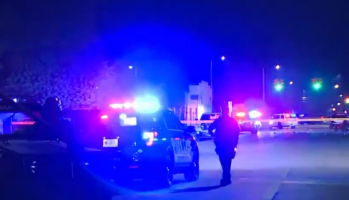BLOOMINGTON, Ind.–If you work for or go to Indiana University or any of its schools, you will be required to get the vaccine before going back for the fall semester, said a news release from IU and a letter to students.
This new requirement will allow the university to lift most restrictions on masking and physical distancing this fall. Knowing that the vast majority of the IU community is vaccinated is the only way the university can confidently return to in-person classes, more in-person events and a more typical university experience, said the news release from the university.
LISTEN: Dr. Dbeibo talks vaccinations and exemptions
The release says all students, faculty and staff should have their first dose of a COVID-19 vaccine by July 1, in order to meet the university’s requirement. They will need to be fully vaccinated (all doses of a vaccine plus two weeks from the final dose) by Aug. 15 or when they first return to campus, whichever is earlier.
“The COVID-19 vaccines that are currently authorized by the FDA are extremely safe and effective,” said Dr. Lana Dbeibo, director of vaccine initiatives for IU’s Medical Response Team and assistant professor of infectious diseases in the IU School of Medicine.
“There are very, very few medical reasons a person would not be able to receive this vaccine. The COVID-19 vaccine is available throughout the U.S., and now those 12 years old and above are eligible. I recommend, unless you have a medical contraindication, to schedule and get the vaccine as soon as you can — not only for yourself, but for those you love as well.”
The university said that there will be a procedure for exceptions, but students, faculty and staff will need to comply with the COVID-19 vaccine requirement in order to interact with the IU community in any way. This includes being on campus, taking or teaching courses, being employed and/or participating in activities.
Dbeibo said the list of exemptions will be out some time in mid June.
“This is the only way I could see that people would not be vaccinated and would be allowed to be a part of the university is if they met those exemption,” she said.
Dbeibo declined to say what might happen if someone wanted to attend, was paid up, but refused to get the vaccine, saying that would be a matter for university administration to talk about.
“We do have policies for people who do not comply, not just for the vaccine but for anything else that the university asks of them,” she said.
The university has outlined strong consequences for those who choose not to meet the COVID-19 vaccine requirement and do not receive an exemption, said the news release.
For students, they will see their class registration canceled, CrimsonCard access terminated and access to IU systems such as Canvas and email terminated, and they will not be allowed to participate in any on-campus activity. Faculty and staff who choose not to meet the requirement will no longer be able to be employed by Indiana University. Working remotely and not meeting the COVID-19 vaccine requirement is not an option.












